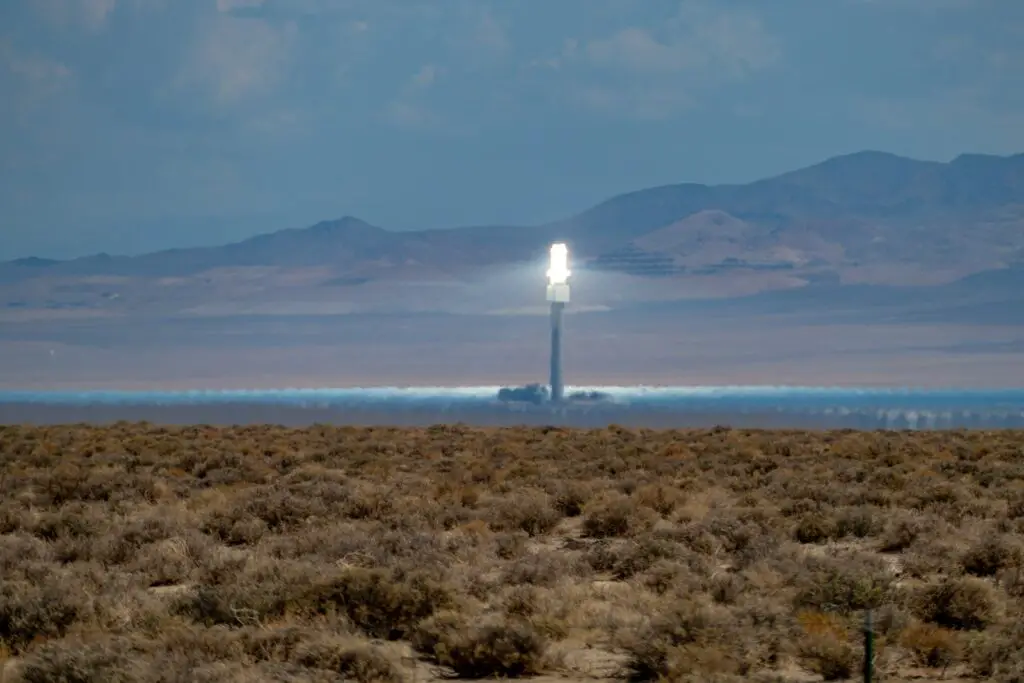Solar plants, also called solar farms, refer to a large area where multiple solar panels or solar arrays are installed to generate electricity from sunlight on a substantial scale, typically to feed into the grid.
As the demand for renewable energy continues to grow, more and more businesses and governments are turning to solar power as a viable source of electricity.
One of the most common questions when planning a solar power plant is how long it takes to build one.
The answer to this question can vary widely depending on several factors, including the project size, location, availability of materials and labor, and regulatory requirements.
How Long Does It Take To Build A Solar Farm?
The time it takes to build a solar power plant can vary depending on several factors.
Some of the main factors that can impact the construction timeline include the project size, location, availability of materials and labor, and regulatory requirements.
For smaller solar power projects, such as rooftop installations, the construction timeline can be relatively short, often taking just a few weeks to complete.
However, the construction timeline can be much longer for larger utility-scale solar power plants.
As a general rule of thumb, the development of a 2-5 MW solar farm spans 8-14 months, though the timeline is significantly influenced by the utility company’s interconnection procedures and local/municipal permitting and approval processes.
The construction phase, which includes the installation of solar panels, inverters, and other equipment, can take 5-10 months to over a year to complete.
How Much Does It Cost to Start up a Solar Power Plant?
The cost to start a solar power plant can vary widely depending on several factors, including the project size, location, type of solar technology used, and regulatory requirements.
The start-up costs can be relatively low for small-scale solar power projects, such as rooftop installations or community solar gardens.
These projects typically range from a few thousand to tens of thousands of dollars, depending on the size and complexity of the installation.
However, the start-up costs can be much higher for large-scale utility solar power plants.
According to the US Energy Information Administration, the average cost to build a utility-scale solar power plant in 2020 was approximately $1.6 million per megawatt (MW) capacity.
A 10 MW solar power plant could cost approximately $16 million.
Is Starting a Solar Farm a Good Business?
Investing in a solar farm can be a good business opportunity, as it provides a renewable energy source and can generate revenue through the sale of electricity.
Solar power plants are a clean and sustainable energy solution, and they can provide long-term benefits to both the environment and the economy.
In addition to generating electricity, a solar power plant can provide other benefits such as job creation, increased property values, and reduced dependence on fossil fuels.
If you know a lot about solar energy, there are numerous available solar laborer vacancies waiting to harness your expertise.
Many governments also offer incentives and subsidies for renewable energy projects, which can make the business case for solar power even stronger.
That being said, like any investment, there are also risks and challenges associated with solar power plant development and operation.
These can include financing, regulatory compliance, project management, and maintenance issues.
Can I Build a Solar Power Plant Quickly?
The timeline for building a solar power plant depends on various factors, such as the size of the plant, and the location.
The availability of equipment and labor, and the regulatory environment.
While building a small-scale solar power plant relatively quickly is possible, constructing a large-scale plant can take several months to a few years.
Some factors that can help expedite the construction process include having a clear and well-planned project scope, securing necessary permits and approvals promptly, having access to high-quality equipment and materials, and working with experienced and reliable contractors and suppliers.
However, it is important to note that the focus should not solely be on building the plant quickly but also on ensuring that the project is built to a high quality, safety, and performance standard.
Rushing the construction process can lead to costly mistakes, delays, and potential safety hazards.
What Permissions Do I Require to Build a Solar Farm?
The permissions required to build a solar power plant can vary depending on the location and regulatory environment.
Note that permits vary depending on your state, region, and locality, and the rules governing permitting in the United States are a bit of a quagmire. If you’re not sure how to proceed with environmental due diligence and permitting, talk to the experts.
In general, some of the key permissions that may be required include:
- Land Use and Zoning Permits: Before building a solar power plant, it is important to ensure that the proposed site is zoned for industrial or commercial use and that the local government has issued the necessary land-use permits.
- Environmental Permits: Depending on the location of the solar power plant, it may be necessary to obtain environmental permits from local and state agencies. These permits may be required to address water usage, air emissions, and wildlife conservation issues.
- Building and Construction Permits: Building and construction permits may be required to ensure the solar power plant is constructed to meet local and state building codes and safety standards.
- Interconnection and Transmission Permits: Solar power plants must be interconnected with the local power grid and may require permits from the utility or grid operator to ensure that the plant can safely and effectively connect to the grid.
- Other Permits: Depending on the location and specific circumstances of the project, additional permits may be required, such as permits for water use, noise, and traffic.








